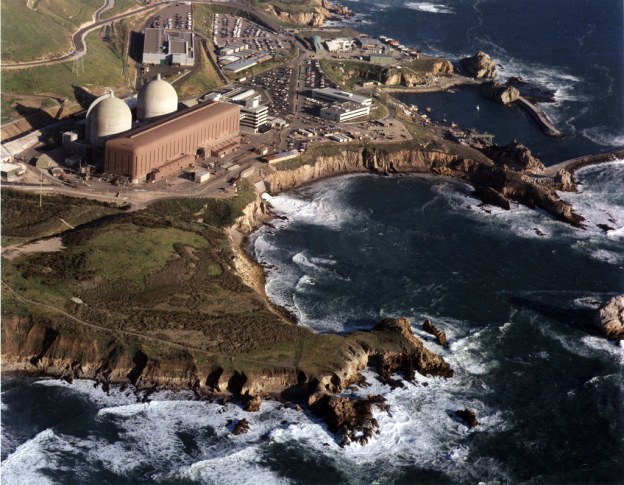Jonathan Rauch writes in the Atlantic Monthly about the innovations in nuclear power technology that might overcome its troubled history. He correctly identifies the core of the problem for nuclear power, although it extends even further than he acknowledges. Recent revelations about the fragility of France’s once-vaunted nuclear fleet illustrates deeper management problems with the technology. Unfortunately he is too dismissive of the safety issues and even the hazardous duties that recovery crews experienced at both Chernobyl and Fukushima. Both of those accidents cost those nations hundreds of billions of dollars. As a result of these issues, nuclear power around the world now costs over 10 cents per kilowatt-hour. Grid-scale solar and wind power in contrast costs less than four cents and even adding storage no more than doubles that cost. And this ignores the competition of small-scale distributed energy resources (DER) that could break the utility monopoly required to pay for nuclear power.
Yet Rauch’s biggest error is in asserting without sufficient evidence that nuclear power is required to achieve greenhouse gas emission reductions. Numerous studies (including for California) show that we can get to a 90% emission free and beyond power grid with current technologies and no nuclear. We have two decades to figure out how to get to the last 10% or less, or to determine if we even need to.
The problem with the new nuclear technologies such as small modular reactors (SMR) is that they must be built on a wide scale as a high proportion of the power supply to achieve the technological cost reductions of the type that we have seen for solar and batteries. And to get a low enough cost per kilowatt-hour, those units must run constantly in baseload mode, which only exacerbates the variable output issue for renewables instead of solving it. Running in a load following mode will increase the cost per kilowatt-hour by 50%.
We should continue research in this technology because there may be a breakthrough that solves these dilemmas. But we should not plan on needing it to save our future. We have been disappointed too many times already by empty promises from this industry.


A summary of the obstacles to expanding nuclear use as of 2024: https://www.utilitydive.com/news/nuclear-boosterism-has-gotten-reckless/710777/
LikeLike
A chapter on Nuclear Economics and Finance that describes how costs have gotten out of control: https://www.worldnuclearreport.org/IMG/pdf/wnisr2023-v4-hr.pdf#page=334
LikeLike
I’m happy to have found a great blog where people can talk about these crucial subjects without taking sides. I predict significant changes in the price of nuclear power within the next five to seven years. This only represents construction expenses. Regretfully, none of the feasibility reports mention the value-chain approach, and it is uncertain how future costs related to uranium extraction, transportation, and enrichment processes will evolve. Perhaps we’ll see a similar future with gas pps/markets.
We have tried to find the EROI for net zero power systems on global scale (https://www.nature.com/articles/s41467-023-44232-9) and tried to draft nuclear side from energy perspective. Even the values we put in there are very very conservative for nuclear. Notably, the absence of updates in the ecoinvent database may result in low estimated CED values. However, I anticipate a similar gas & coal EROI sensitivity trend for nuclear power.
LikeLike
https://www.utilitydive.com/news/nuscale-uamps-project-small-modular-reactor-ramanasmr-/705717/
The collapse of NuScale’s project should spell the end for small modular nuclear reactors
The UAMPS project is no exception, and just adds one more data point to a long history of cost and time overruns for nuclear power projects. A 2014 academic study examined 180 nuclear power projects around the world and found 175 of them exceeded the initial budget by an average of 117% by the time they were completed. They also took, on average, 64% longer than projected.
https://www.sciencedirect.com/science/article/pii/S0360544214008925
LikeLike
The collapse of NuScale’s project should spell the end for small modular nuclear reactors
https://www.utilitydive.com/news/nuscale-uamps-project-small-modular-reactor-ramanasmr-/705717/
The UAMPS project is no exception, and just adds one more data point to a long history of cost and time overruns for nuclear power projects. A 2014 academic study examined 180 nuclear power projects around the world and found 175 of them exceeded the initial budget by an average of 117% by the time they were completed. They also took, on average, 64% longer than projected.
https://www.sciencedirect.com/science/article/pii/S0360544214008925
LikeLike
Commentary by Peter Allen that sums of the state of the technology: https://energycentral.com/c/gn/new-nuclear-renaissance-are-we-there-yet
LikeLike
Here’s a long essay on how nuclear power costs have been rising over the decade. https://progress.institute/nuclear-power-plant-construction-costs/
LikeLike
The NRC is working on new rules for SMRs and advanced reactors. https://www.utilitydive.com/news/nrc-nuclear-rulemaking-rule-53-advanced-reactors-small-modular-reactors/644248/
LikeLike